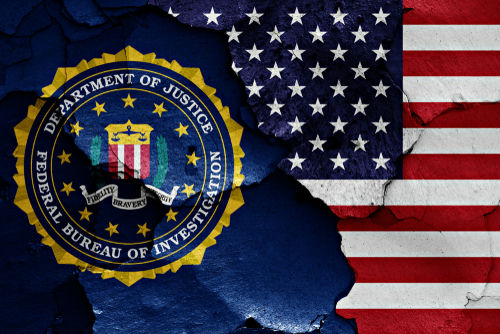Lawmakers were physically trapped and denied access at a federal detention center, intensifying concerns over government transparency and the balance of power in America’s immigration enforcement.
Repeated Denial of Congressional Oversight at Detention Centers
On August 6, 2025, U.S. Representatives Adriano Espaillat, Nydia Velázquez, and Daniel Goldman were denied entry to the Metropolitan Detention Center (MDC) in Brooklyn, New York, as they attempted to conduct an oversight visit. Accompanied by advocacy groups, the lawmakers were reportedly trapped between a fence and the facility after masked agents locked the gates and disappeared for 20 to 30 minutes. This marked the latest in a string of confrontations between Congress and federal detention authorities, with repeated access denials raising significant concerns over transparency, detainee treatment, and the proper balance of power between government branches.
Such confrontations are not isolated. Just weeks earlier, on June 8, 2025, Espaillat and Velázquez faced similar denial at an ICE facility in Manhattan. Multiple previous attempts by lawmakers to access federal detention centers have been rebuffed, especially during periods of intensified immigration enforcement. These actions spotlight a troubling pattern where lawmakers, exercising their constitutional duty to oversee federal operations, are blocked by the very agencies they are charged with monitoring. The escalating frequency and intensity of these standoffs have alarmed constitutional scholars and advocates for government accountability.
Trump Administration’s Aggressive Immigration Agenda
President Trump’s second term has brought a sweeping crackdown on illegal immigration, fulfilling campaign promises to secure the border and enforce the law. Through executive orders, legislative action, and a major new law dubbed the “One Big Beautiful Bill Act,” the administration has dramatically expanded detention capacity, quadrupling ICE’s budget and increasing funding for both adult and family detention. The new law also strips many legal immigrants of access to key benefits and imposes new taxes, while funneling billions to private prison operators. Critics argue these policies risk due process and humanitarian protections, but supporters contend they restore order to a system long undermined by lax enforcement and open-border agendas.
The administration’s early actions include a national emergency declaration at the southern border, daily arrest quotas, aggressive deportation targets, and pressure on local governments to cooperate with federal authorities. Sanctuary jurisdictions face threats of civil and criminal penalties and funding cuts if they limit immigration enforcement. Refugee admissions and humanitarian pathways have been curtailed or suspended, while expedited removals and enforcement at previously protected locations have been dramatically expanded. The administration maintains these steps are necessary to protect American sovereignty and public safety, while upholding the rule of law.
Constitutional Tensions: Oversight vs. Executive Power
The physical denial and trapping of lawmakers at federal detention facilities represent more than just bureaucratic stonewalling—they raise fundamental questions about the separation of powers and the health of American democracy. Congressional oversight is rooted in the Constitution and is essential to ensuring that federal agencies remain accountable to the people. Legal experts warn that repeated denials and obstruction could set a precedent for unchecked executive power, eroding the ability of Congress to scrutinize government actions that affect civil liberties and constitutional rights. These incidents have already sparked calls for legislative or legal action to clarify oversight protocols and defend Congress’s constitutional prerogatives.
Advocacy groups and immigrant rights organizations have amplified public scrutiny of detention practices, arguing that lack of transparency enables abuses and undermines public trust. Meanwhile, facility officials and ICE agents justify restricted access on security grounds or operational necessity, highlighting the ongoing friction between enforcement priorities and democratic accountability. As these battles play out, affected communities—including detainees, local residents, and taxpayers—remain caught in the crossfire of policy, politics, and principle.
Broader Impact and the Path Forward
The standoff at Brooklyn MDC and similar incidents signal a broader shift in America’s immigration landscape under the Trump administration. In the short term, these confrontations fuel media scrutiny and political tension. Long term, they may prompt significant legal or legislative reforms to strengthen congressional oversight, ensure transparency, and protect the constitutional balance of power. As the administration continues its aggressive immigration agenda, the nation faces urgent questions about the appropriate limits of executive authority, the inviolability of constitutional checks and balances, and the future of American civil liberties. For conservatives, the story is a wake-up call to remain vigilant against any erosion of foundational values, even as the fight to restore order at the border intensifies.
Sources:
Click this link for the original source of this article.
Author: Editorial Team
This content is courtesy of, and owned and copyrighted by, https://www.conservativecardinal.com and its author. This content is made available by use of the public RSS feed offered by the host site and is used for educational purposes only. If you are the author or represent the host site and would like this content removed now and in the future, please contact USSANews.com using the email address in the Contact page found in the website menu.








